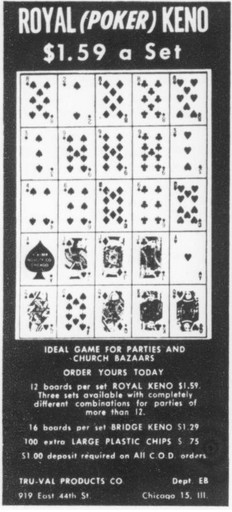Some years back, I went with some friends to a restaurant that specialized in hamburgers.
When there, I noticed that it advertised itself as the last of the great old burger joints. This puzzled me, as I was around, and not in my infancy, even back in the 1960s, and I hadn't heard of them. The name of the chain was "Fatburger".
The mystery, however, cleared itself up when I got back home, and searched on the Internet. This chain of fast food restaurants catered to people who, back in those days, in at least some American states, would not be allowed to enter the more popular and well-known locations.
And so this was one of the lingering reflections of a dark chapter in American history; one that may not yet be entirely over.
Recently, a YouTube video was suggested to me. I had already encountered, but subsequently forgotten, that for a time a 12 ounce bottle of Pepsi sold for the same price - five cents - as a 6 ounce bottle of Coca-Cola. Today, they sell at the same price, and even no-name discount brands are at best 2/3 of the price of the major brands.
The video in question noted that, for a brief period, Pepsi made an effort to advertise its product to the same group of Americans as noted above; given that they were, in general, economically disadvantaged, it made sense that a more economical product, if of equal value, would appeal to them.
This inspired me to look at old issues of Ebony magazine to see the Pepsi ads in them. I found a couple, but they weren't as interesting as the ones shown in the video.

However, one other advertisement that caught my eye was this small one shown at right.
There didn't seem to be any other advertisements for board games of any kind in the issues I looked at. In any event, I looked around for other similar games.
I myself owned a game of this kind which was made by Transogram. In 1963, they were calling it Poker Bingo, and in 1966 they were calling it Poker Keeno.
In the 1970s, Cadaco was selling the same game as Poker-Keeno. Cadaco was founded in 1930, but Transogram was sold off in 1971, after its sales did less well after the death of its founder; perhaps it was sold to Cadaco.
The most well-known game of this time appears to be the one made by the U.S. Playing Card Company, starting in 1930, and sold by the name Po-Ke-No.
However, the game of Bridge Keno, again of this same type, made by Klauber Games, was sold back in 1929 at least.
And in Quebec, in the 1950s, there was O-K-O, another version of Bingo with cards instead of numbers in a 5x5 grid. Early sets said "Take Me Home" above O-K-O, but they were billed as being "A Tremblay Game".
So it seems like any company that wished to could make a game of this type; it wasn't a game owned by any one company. Does that mean that it had been around long before 1929?
I thought that perhaps I might find it being played in the Victorian era. However, while similar games, Lotto among them, had existed for a long time, the modern form of Bingo with which I am familiar, as played in Canada and the United States, was only invented in the 1920s and patented in the 1930s.
Copyright (c) 2025 John J. G. Savard